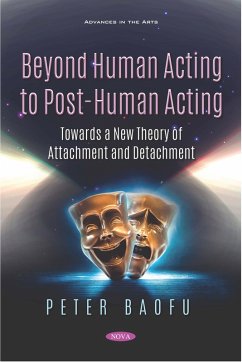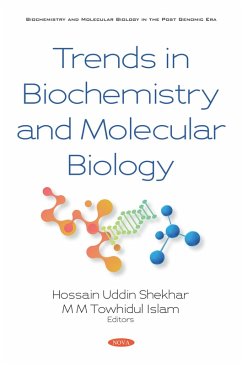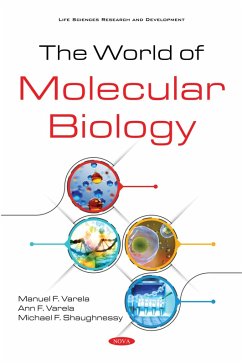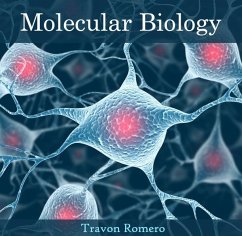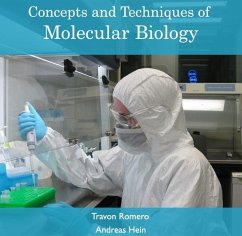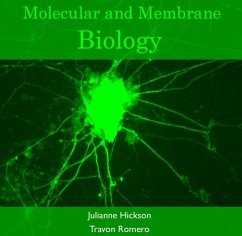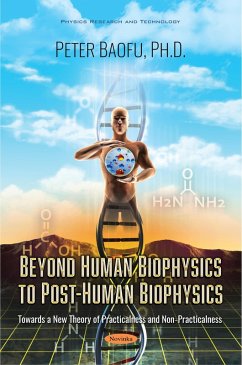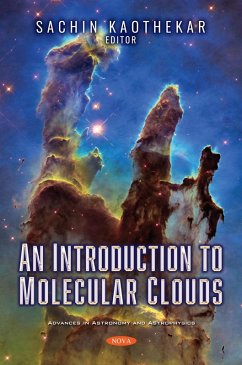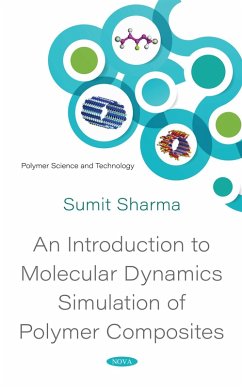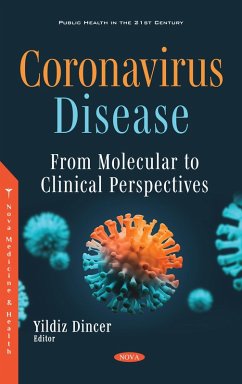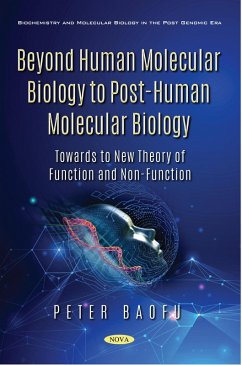
Beyond Human Molecular Biology to Post-Human Molecular Biology: Towards to New Theory of Function and Non-Function (eBook, PDF)
Versandkostenfrei!
Sofort per Download lieferbar
76,95 €
inkl. MwSt.

PAYBACK Punkte
38 °P sammeln!
Is molecular biology really so promising that, as William T. Astbury (TOD 2019) assertively claimed, "We are at the dawn of a new era, the era of 'molecular biology' as I like to call it..."? This affirmative view on molecular biology can be contrasted with the opposing one by Sir Frank Macfarlane Burnet, who warned that "there is virtually nothing that has come from molecular biology that can be of any value to human living in the conventional sense of what is good, and quite tremendous possibilities of evil, again in the conventional sense." (TOD 2019a) Contrary to these opposing views (and ...
Is molecular biology really so promising that, as William T. Astbury (TOD 2019) assertively claimed, "We are at the dawn of a new era, the era of 'molecular biology' as I like to call it..."? This affirmative view on molecular biology can be contrasted with the opposing one by Sir Frank Macfarlane Burnet, who warned that "there is virtually nothing that has come from molecular biology that can be of any value to human living in the conventional sense of what is good, and quite tremendous possibilities of evil, again in the conventional sense." (TOD 2019a) Contrary to these opposing views (and other ones as will be discussed in the book), human molecular biology (in relation to function and non-function-as well as other dichotomies) is neither possible (or impossible) nor desirable (or undesirable) to the extent that the respective ideologues (on different sides) would like us to believe, such that there is no function without non-function (and vice versa), to be explained by the "functionality-nonfunctionality principle," the "survivability-nonsurvivability principle," the "regression-progression principle," the "evolution-transformation principle," the "intentionality-nonintentionality principle," the "optimality-nonoptimality principle," and others principles in "existential dialectics" (Chapter Four). Of course, this challenge to the conventional debate does not mean that human molecular biology, as a field of field, is unimportant, or that those diverse fields (related to human molecular biology)-such as biochemistry, genetics, bioinformatics, computational biology, evolutionary biology, biophysics, ecology, molecular engineering, gene therapy, molecular modeling, science fiction, political science, economics, sociology, psychology, philosophy, religion, and so on¿should be dismissed. Surely, neither of these extreme views is reasonable. Instead, this book offers an alternative (better) way to understand the future of human molecular biology (and related fields) in regard to the dialectic relationship between function and non-function (and those in other dichotomies)-while learning from different approaches in the literature but without favoring any one of them (nor integrating them, since they are not necessarily compatible with each other). More specifically, this book offers a new theory (that is, the function-nonfunction theory of molecular biology) to go beyond the existing approaches in a novel way and is organized in four chapters. This seminal project will fundamentally change the way that we think about human molecular biology (in relation to the dialectic relationship between function and non-function-as well as those in other dichotomies) from the combined perspectives of the mind, nature, society, and culture, with enormous implications for the human future and what I originally called its "post-human" fate.
Dieser Download kann aus rechtlichen Gründen nur mit Rechnungsadresse in A, B, BG, CY, CZ, D, DK, EW, E, FIN, F, GR, HR, H, IRL, I, LT, L, LR, M, NL, PL, P, R, S, SLO, SK ausgeliefert werden.




